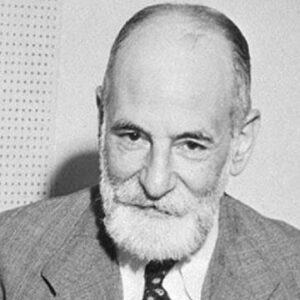René Cassin was a French lawyer who worked on the Universal Declaration of Human Rights, which was adopted by the United Nations General Assembly on December 10, 1948. In 1968, he was awarded the Nobel Peace Prize for his efforts. He studied law before joining the French Army in World War I as the son of a French-Jewish merchant. For the young lawyer, the war experience was terrible. He was badly hurt and in excruciating pain. This encounter taught him the futility of war and had a profound impact on the rest of his life. He went on to have a successful career as a law professor after the war and dedicated himself to the cause of disarmament. He traveled extensively and lectured in several locations throughout the world, as well as contributing significantly to legal studies and publishing scores of articles. Cassin became president of the Council of State (Conseil d’État) after WWII and was instrumental in the founding of the United Nations Educational, Scientific, and Cultural Organization (UNESCO). He also played a key role in the development of the Universal Declaration of Human Rights. He served as a representative to the United Nations Assembly five times and as a delegate to the UNESCO conferences for several years between 1945 and 1960.
Childhood and Adolescence
René Samuel Cassin was born on October 5, 1887, to Gabrielle (Dreyfus) Cassin and Henri Cassin in Bayonne, Basque Country, France. His father was a Jewish trader from France.
He was an excellent student at the Lycée de Nice and excelled in his academics. He subsequently went on to the University of Aix-en-Provence for his postgraduate studies, graduating with a humanities and law degree in 1908. In 1914, he completed his schooling with a degree in legal, economic, and political sciences.
Career of René Cassin
In 1914, he was drafted into the infantry for World War I. In 1916, while fighting in the war, he was severely injured by German shrapnel. He was on the verge of death but miraculously survived. The injury bothered him for the rest of his life, serving as a constant reminder of the war’s atrocities.
Late in 1916, he began a career as a law professor at Aix. In 1920, he became a law professor in Lille, and in 1929, he became the chair of fiscal and civil law at the University of Paris. He stayed there until 1960, when he retired from formal teaching.
His career as a professor was extremely fruitful. He lectured at the National School of Overseas Territories and the Academy of International Law in The Hague, as well as doing academic missions in Europe, French Africa, the Middle East, and the Far East.
Between 1924 to 1938, he became interested in pacifist movements and served as a delegate to the League of Nations assemblies and disarmament conferences in Geneva. He was a prolific writer who specialized in legal issues, particularly those relating to human rights.
He was the commissioner of public instruction during World War II. He became head of the Council of the National School of Administration after France was liberated in 1945.
He was a French delegate to UNESCO from 1945 to 1952 and helped form the United Nations Educational, Scientific, and Cultural Organization (UNESCO) in 1944. From 1946 through 1968, he was the French envoy to the United Nations.
René Cassin founded the French Institute of Administrative Sciences (IFSA) in 1947 and served as its first president. This organization hosted a number of conferences that contributed to the development of French administrative law doctrine.
He was the president of the United Nations Commission on Human Rights from 1947 to 1948. He worked on the Universal Declaration of Human Rights while in this capacity. He prepared the final text of the proclamation from a draft written by Canadian scholar and law professor John Humphrey, which was eventually adopted by the United Nations General Assembly.
He also advocated education and law throughout his career, serving as president of the French chapter of the World Federation of Democratic Jurists (1949), the Society of Comparative Legislation (1952-1956), and the International Institute of Administrative Sciences (1953-1956).
Major Projects of René Cassin
Rene Cassin is most known for his work on the Universal Declaration of Human Rights, which he drafted from John Humphrey’s original composition. The United Nations General Assembly approved the proclamation on December 10, 1948. For this work, he got several important honors.
Achievements and Awards
For his work on the Universal Declaration of Human Rights, he received the Nobel Peace Prize in 1968. He was also awarded the United Nations Prize in the Field of Human Rights in the same year.
Personal History and Legacy
Rene Cassin was married to Marseilles’ Simone Yzombard.
He died in Paris, France, on February 20, 1976.
The René Cassin Award was established by the Basque Government in 2003 “with the goal of publicly acknowledging and rewarding individuals or collectives who, through their personal or professional path, have demonstrated a strong commitment to the promotion, defense, and divulgation of Human Rights.”
Estimated Net Worth
The estimated net worth of René Cassin is $1.5 million.


